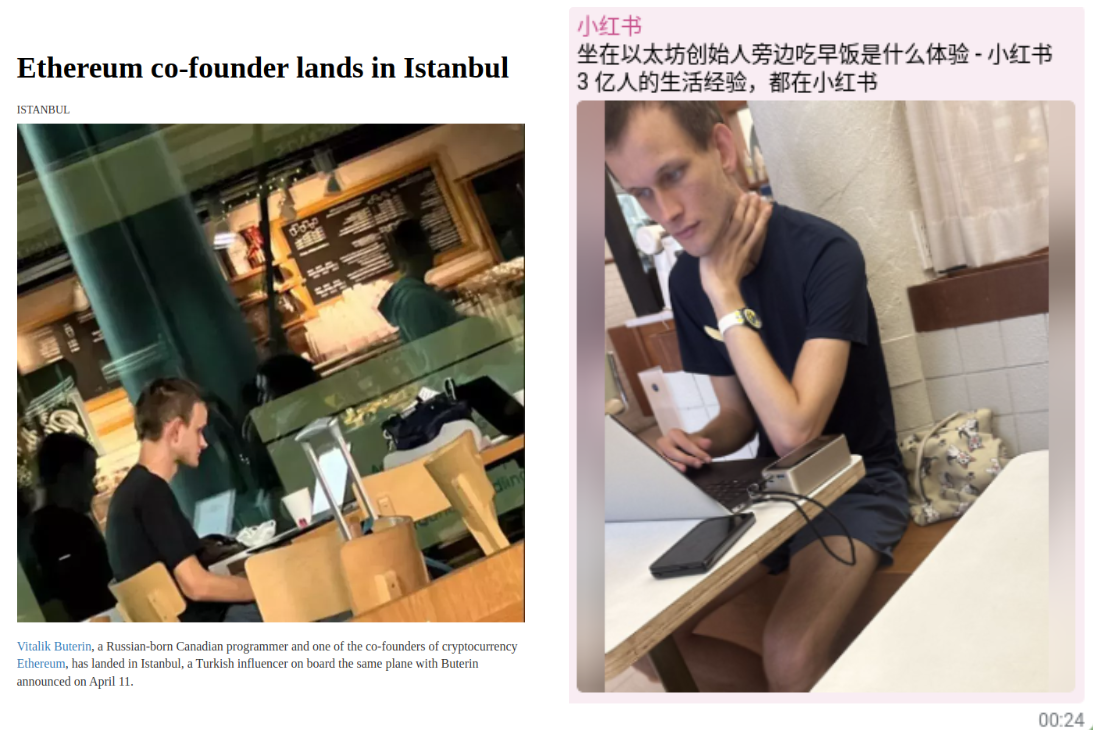Vitalik Buterin, a co-founder of Ethereum, emphasized that privacy should be a primary focus for developers, cautioning that the belief in transparency and good intentions in global governance is overly naive.
In a blog post dated April 14, he contended that privacy is crucial for safeguarding individual freedom and countering the expanding influence of governments and corporations. He criticized the notion that greater transparency is inherently advantageous, claiming it rests on assumptions about human behavior that have become increasingly unreliable.
“These assumptions include the belief that global political leaders generally have good intentions and are rational, as well as the idea that social culture continues to improve,” Buterin noted. “Both of these notions are turning out to be increasingly false.”
He asserted that “there is no prominent country where the first assumption is widely accepted as true.” Moreover, he indicated that cultural tolerance is “rapidly declining,” a phenomenon evidenced by a search on social media for the phrase “bullying is good.”
Buterin’s own privacy challenges
Buterin expressed discomfort with his own lack of privacy at times. He remarked:
“Every single action I take outside carries some risk of becoming a public media story.”

Covertly taken photos of Vitalik Buterin.
While this might seem to suggest that privacy is beneficial only for those who stray from social norms, he pointed out that “you never know when you might find yourself in that situation.”
Buterin anticipates that the demand for privacy will grow as technology advances, particularly with brain-computer interfaces potentially allowing automated systems direct access to our thoughts. Another concern is automated price gouging, where companies charge based on what they expect individuals will pay.
Related: Messaging apps are watching you — Here’s how to protect yourself in 2025
Government backdoors compromise privacy
Buterin strongly opposed the addition of government backdoors in privacy-protecting systems, stating that such views, while common, are inherently unstable.
He pointed out that, in the case of Know Your Customer data, “it’s not just the government. Various corporate entities, of differing qualities, can also access private information.” This data is often collected and managed by payment processors, banks, and other intermediaries.
Telecommunication providers can track their users and have been found to unlawfully sell this information. Buterin also raised concerns that those with access are incentivized to misuse it, and data repositories can always be breached. Furthermore, a reliable government today can become untrustworthy tomorrow, inheriting all sensitive information. He concluded:
“From an individual’s perspective, if data is taken from them, there’s no way to know how or if it will be misused in the future. The safest approach is to collect as little large-scale data as possible right from the start.”
Related: Privacy will unlock blockchain’s business potential
Increased data access for authorities
Buterin raised concerns about governments being able to access whatever they want with a warrant, “because that’s how things have always been.” He noted that this perspective neglects to consider that historically, the volume of data accessible via warrants was significantly smaller.
He reminded that the types of data traditionally available would remain available even “if the most robust forms of internet privacy were universally implemented.” He explained that “in the 19th century, the average conversation took place once, through voice, and was never documented by anyone.”
Buterin’s suggested solutions
Buterin proposed solutions largely centered on zero-knowledge proofs (ZK-proofs) because they provide “detailed control over who can view what information.” ZK-proofs are cryptographic protocols that enable one party to verify a statement without disclosing any additional details.
One such approach is a ZK-proof-based proof of personhood that confirms that an individual is unique without revealing their identity. These systems would utilize documents like passports or biometric data in conjunction with decentralized frameworks.
Another proposed solution is the newly established privacy pools, which facilitate regulatory-compliant anonymity for Ether (ETH). Buterin also highlighted the importance of on-device anti-fraud scanning, which involves monitoring incoming communications to detect potential misinformation and scams.
Lastly, he mentioned proof of provenance services for physical products that utilize a mix of blockchain and ZK-proof technology to ensure authenticity by tracking an item’s characteristics during its manufacturing process.
This discussion follows Buterin’s recent privacy roadmap for Ethereum, where he underscored the immediate changes needed in the core protocol and ecosystem to bolster user privacy.
Magazine: Cypherpunk AI: Guide to uncensored, unbiased, anonymous AI in 2025
